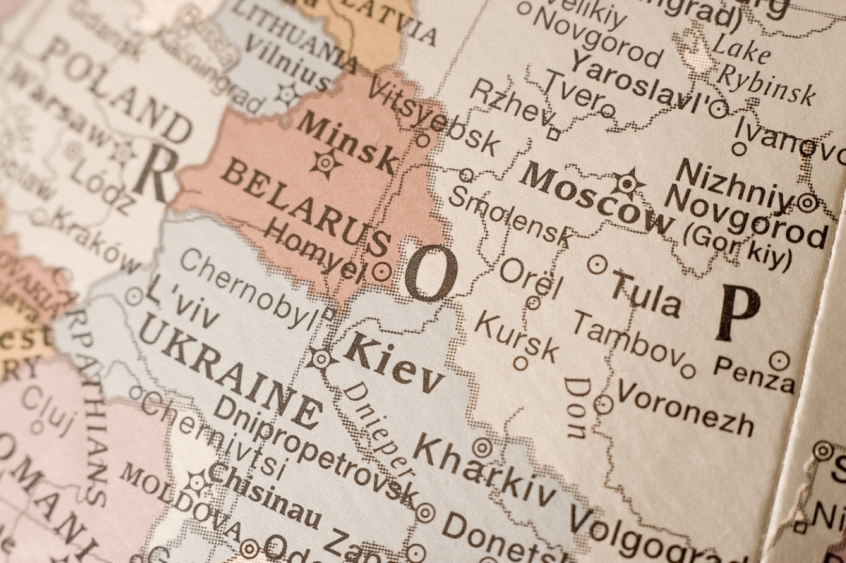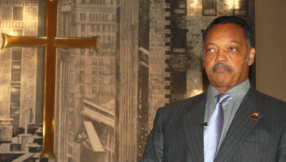
Over the weekend – as a Russia watcher – I was reading a couple of interviews online. The first was posted in April and the second this month. They made for disturbing reading. Both posts involved somebody that most people in the UK (or indeed in the West generally) will not have heard of: Alexander Dugin.
A conversation to which we should all pay attention
The longest post was an extraordinary conversation (available in English translation from the Russian original), between Dugin and Yekaterina Sazhneva, a columnist at the Russian daily, Moskovsky Komsomolets (MK). In it, Dugin revealed the extent to which he sees the war against Ukraine in apocalyptic terms.
It should be noted that MK is now Russia's highest circulation daily. Since the invasion of Ukraine, it has been deemed significant enough a publication for its editor-in-chief to be targeted with EU sanctions. Consequently, this was not a conversation hidden away in some dark corner of the internet. That is a point to bear in mind when reflecting on what was contained in the interview.
Neither is Dugin an inconsequential figure, being very influential in Russian nationalist circles. As with many Russian nationalists, he argues that Russia should fulfil what is regarded as its prophetic destiny. This involves overthrowing the present cultural order of things, including human rights and perceived "political correctness."
This ideology is rooted in the concept of a resurgent Russia – in opposition to the US, the West and liberal democracy – asserting its own unique spiritual and cultural identity. It is claimed that this will accompany the creation of a revitalized Russian Orthodox national community and the end to Russian spiritual decay. One can see why a number of commentators have viewed this as a peculiarly Russian-nationalist millenarianism in its values and outlook.
In the 1990s, Dugin was highly influential. In 1997 he published The Foundations of Geopolitics, containing an expansionist view of Russia that was applauded by hardline nationalists. The book arose from his fortnightly lectures at the military General Staff Academy. The rise of Putin to supreme power after 2000 caused Dugin to focus on him as the leader who might be the one to put into practice the kind of national transformation he argued for.
However, Dugin came to be disappointed with (what he considered) Putin's lack of appetite for apocalyptic conflict. The annexation of Crimea in 2014 did not turn into a transformational battle. After that, some commentators reported that he had fallen out of favour with the Kremlin and appeared increasingly disenchanted with a lack of sufficient radicalism exhibited by the Putin regime. However, the traumatic events of 2022 reveal that Putin is increasingly drawing inspiration from a deep well of violent radicalism.
Which brings us back to the conversation with Yekaterina Sazhneva...
Russia and the apocalypse
In the conversation, it is clear that Dugin regards the war (the "Special Military Operation" or "SMO" in official Russian parlance) as being a watershed moment in the modern history of Russia, which has seen Putin (previously the rational-opportunist that Dugin terms the "lunar Putin") transformed into an enthusiastic proponent of apocalyptic imperialism (what Dugin terms the "solar Putin"). Consequently, Putin is now, for Dugin, the one bringing "deliverance" to the Russian people and is, Dugin insists, a "man of destiny".
This all sounds rather esoteric, but in Ukraine such musings translate into tanks, missiles and massive casualties. In short, it is nationalist mysticism with attitude. And we need to pay attention to it, for we play a part within its worldview.
The battle against the "evil West"
Dugin describes Putin in almost messianic terms. He quotes the late French writer and journalist Jean Parvulesco who had, we are told, predicted that a great Russian leader would arise who would "establish an imperial eschatological will over the land, from the Atlantic to the Pacific". Now, at the phrase "eschatological will" we really should start paying attention.
For Dugin, "Truth and God are on our [Russia's] side. We are fighting the absolute Evil embodied in Western civilization."
When 21st century conflicts are described in these terms, we see politics being addressed on a different level to the norm. There is some comfort in the indication that he thinks Russia should try to avoid the conflict going nuclear, but not much comfort in his conclusion that: "If it is impossible to avoid what is destined to happen, it is important to be on the right side at the moment of the End of the World. On our [Russia's] side."
So, choose your sides for Armageddon.
Dugin did not go so far as to claim that the prophecies in the book of Revelation are about to be fulfilled, but he displayed remarkable sangfroid when confronted with the question of whether they might be. The interviewer had previously asked him: "As John's Revelation suggests, Pestilence (coronavirus) is followed by War, followed by Famine and Death. Are the horsemen of the Apocalypse coming?"
Dugin's reply suggested that his twin beliefs in the inevitability of the apocalypse and the defence of Russian identity were inextricably combined. This ideology represents an intense apocalyptic nationalism. In this, pursuit of Russia's interests is indistinguishable from the defence of Christianity.
What is particularly interesting is the way that Dugin compares Russia with the West: "We [Russia] are conducting an eschatological military operation, a special operation on the vertical plane between Light and Darkness, in an end-time situation."
In contrast, "The West is the party of Darkness by all its signs and symbols."
This could almost have come from Revelation, but with the words "Russia" and "the West" inserted at key points in the end-times narrative. Dugin is not just thinking about the threat to Russian life and culture posed by McDonald's and Starbucks (though, apparently, not for much longer). It goes much deeper than that. And this kind of outlook is spreading in Russia.
In April 2022 – six weeks into the Russian invasion of Ukraine – Patriarch Kirill, stated his belief that, "It is the Orthodox faith, living and acting in the Orthodox church – this is the force that holds back (the Antichrist)."
The implication seemed clear: Russian actions are part of an eschatological struggle against the forces of darkness (i.e. the West and decadent liberalism). Which raises the question of what form this manifestation of the Antichrist takes in the West.
In a later piece (published in May), Dugin described the Ukrainian state, against which the Russian "Special Military Operation" was deployed, as encompassing "Nazism, liberal values and gay pride parades". The last cited is often a litmus test used by Russian nationalists when defining their difference with the West - although it seems a rather surprising reason for launching all-out war. The words could have been spoken by Kirill in his characterizing of the "Antichrist West". They could equally have been spoken by Putin.
For Putin – once a coldly calculating operator – now speaks, what one might term, fluent apocalyptic "Duginese". Musing on the question of whether the president of the Russian Federation reads his writings, Dugin posited that the answer is that they both "read the same writings, written in golden letters on the sky of Russian history". What is clear is that, nowadays, the two men are definitely on the same apocalyptic page.
Time to defend the Western values of liberal democracy
The Christian Church arose in a context of multicultural pluralism: the Roman Empire. That did not mean that early Christians approved of, or were comfortable with, the lifestyle of their surrounding society - a quick glance at the letters of the New Testament makes that clear. But what it did mean was that they witnessed to their distinctive way of living, without imposing it on others. They recognised the existence of a system of plurality, while standing firm to their own values.
This was in line with both the moral purity and challenge presented by Jesus, and his refusal to coerce others. Jesus said, "My kingdom is not from this world" (John 18:36 NRSV), but many Christians over history (and especially in modern times) have felt an intrinsic attraction to tough men (and so often it is men) who promise a return to traditional values and behaviour and are not squeamish about how they do it. However, Machiavelli's maxim of "the ends justify the means" is not our foundational statement. For Christians, it is better to fail to get others to follow our lifestyle, than to have recourse to imposition. The gospel is shared, it is not imposed.
That is why we should not be afraid to defend the Western pluralist, liberal democracy that is so disdained by Alexander Dugin. We defend it as a model of social and political organisation - not everything that exists within it. Furthermore, we should remember that it is rooted in Enlightenment values that were themselves (despite much that is often said to the contrary) rooted in a Christian tradition which recognises the intrinsic value of individual human beings made in the image of God (despite being marred by the Fall) and for whom Christ died. It was also a reaction against the confessional slaughters which had characterised European society in the sixteenth and seventeenth centuries. We should not abandon Enlightenment values to secular humanism. We played a major part in creating them.
Today, there will be things about our Western culture (including aspects of current debates on consumerism, personal morality, gender, and sexuality) where a sizeable number of Christians hold views which are different to those held by some others. We need to express our views about issues of personal conduct graciously, but not impose our ideas on others, remembering that those who impose their will on others create an environment where things can be imposed on them too.
And there are times when we need to remind those we disagree with, that living in a pluralist, liberal democracy allows us the right to express our views and concerns. Attempting to balance the right to express contrary views, while also protecting the rights of others (including those with whom we disagree) is what constitutes the challenge of life in a liberal democracy.
It is far from perfect – but the situation in Russia reminds us of where the alternative can end up. We need to sometimes be the critics of our liberal democratic society, but also to defend it in principle, as a system of living in community.
Maybe, Dugin is correct. Maybe, when push comes to shove, we must choose a side.
Martyn Whittock is an evangelical historian and a Licensed Lay Minister in the Church of England. As the author, or co-author, of fifty-four books, his work covers a wide range of historical and theological themes. In addition, as a commentator and columnist, he has written for several print and online news platforms; has been interviewed on radio news exploring the interaction of faith and politics; appeared on Sky News discussing political events in the USA; and recently has been interviewed regarding the war in Ukraine, including its religious dimensions. His most recent books include: The Secret History of Soviet Russia's Police State (2020), Daughters of Eve (2021), Jesus the Unauthorized Biography (2021), The End Times, Again? (2021) and The Story of the Cross (2021). He has just completed Apocalyptic Politics (2022 forthcoming), which examines apocalyptic beliefs driving political radicalization across global cultures, including in Russia.













